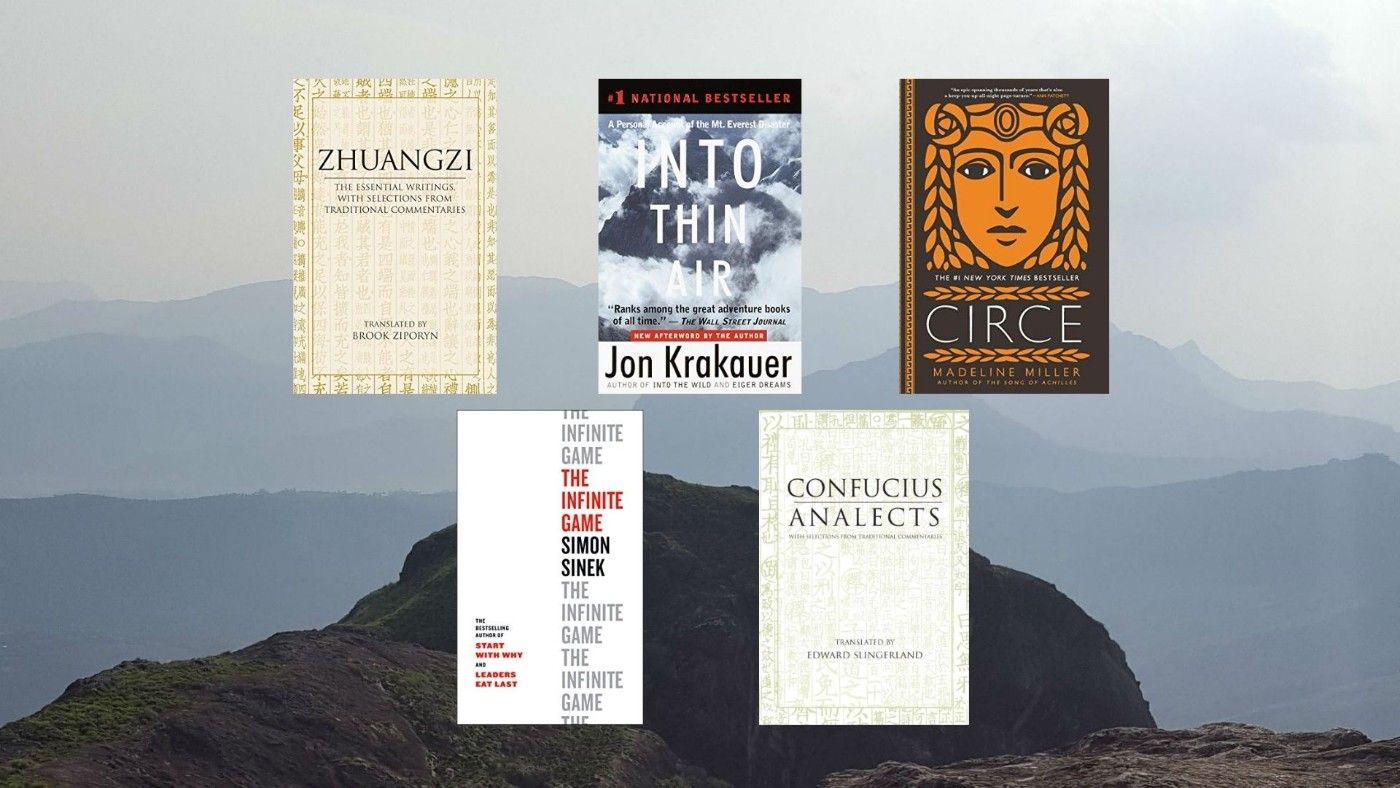We're welcoming in the new year with five transformational suggestions for any budding bad philosophers out there.
1. Try reading some difficult philosophy to get your inner bad philosopher flourishing.
I know 2021 has been a difficult year for many of us, but it might be about time to finally put down the Nietzsche and Dostoyevsky books and find yourself some real philosophy.
Here I'm thinking about some Hegel, maybe Wittgenstein, or, if you're feeling particularly eclectic, something from the medieval period.
In 2022, I'm personally planning on spending some time discussing the nature of the thing-in-itself with Kant (I know you say it exists, but how can we know it exists!?), and at some point I want to start digging into Wittgenstein's Philosophical Investigations (I'm annoyed they don't have a Kindle edition of this available, because I despise note-taking using physical books).
One book I read this past year that I definitely recommend is Confucius' Analects: With Selections from Traditional Commentaries, translated by Edward Slingerland and published by Hackett Classics. The translation seems solid to me and after going through this text, I feel the Analects is completely un-readable without the inclusion of commentaries by other Ancient Chinese philosophers. For anyone who thinks non-Western philosophy doesn't have any rich ethical frameworks, this book should shatter that presumption.
And while I know this year has been tough, in 2022, don't plan on spending all of your time locked indoors reading books!
2. Get outside for some fresh air and exercise.
Lots of philosophers have written lots of things about the importance of getting out into the great outdoors.
Simone de Beauvoir went on some legendary multi-day hikes through the mountains without proper equipment. Nietzsche would spend upwards of 8-10 hours per day strolling through the great outdoors. Heck, Nietzsche even wrote in his notebook the exact spot he came up with his Eternal Recurrence idea while out for a jaunt in Switzerland.
There are countless other examples that I won't go into here, but the point is that getting into nature and getting movement through your limbs is great for both your mind & body. If you want to be a bad philosopher, you've got to get out for a good long walk in nature: bonus points if you can do so alone and brooding.
Speaking of being alone and brooding, practicing these two things in combination can be very healthy indeed.
3. Try philosophical meditation.
We're beyond cliché at this point, but there are several philosophical examples of meditation.
Roman Emperor Marcus Aurelius meditated on Stoic virtues and wrote his own book about it. It's even called the Meditations (technically it's a diary that was later compiled into a book, but the point stands).
René Descartes meditated with a deep skepticism and came to the conclusion that the reality of everything in the world could be doubted, apart from the reality of his own mind as a thinking being. Published as Meditations on First Philosophy, this practice of what he termed "meditation" to the point of doubting all of reality apart from one's own self formed the basis for an explosion of philosophical writing that sprung up during the Enlightenment.
I mean, Descartes also led the next few centuries worth of philosophy down a completely fruitless and counter-productive path of dualism (the idea that consciousness is a distinct entity from the material world). So if you're going to meditate on anything, be careful what you write down and share with others.
While one could argue that Aurelius and Descartes weren't actually practicing "meditation" as we know it today, they were proponents of a type of philosophical meditation where one examines the contents of one's own mind, releases preformed biases and emotional attachments, and attempts to cut down to the true nature of things as they truly are.
Speaking of releasing preformed biases, how about looking at some aspect of our lives that could be in need of some serious change or experimentation?
4. Try out ethical veganism.
The key word here is 'ethical'. I'm not promoting the type of veganism where someone goes on a crash-course vegan diet for two weeks and says "I feel soo incredible!" Instead, the idea with ethical veganism is to avoid eating animals in order to reduce the amount of unnecessary suffering in the world—not just to help you along on your selfish goal of becoming healthier (although that could certainly be a bonus) or on-trend.
In short, there are three fundamental reasons for adopting a vegan diet, and each individual may give each reason a different emphasis:
- To reduce the amount of suffering experienced by animals (particularly factory farms and slaughterhouses);
- To reduce the amount of environmental and ecological destruction taking place (animal agriculture is the second largest emitter of greenhouse gases, after fossil fuels); and
- To eat a healthier and more sustainable diet that reduces our risk for chronic illnesses and helps us to live better, longer.
When I started out with reducing meat consumption, I personally put a lot of emphasis on #1 and #2. I figured that even if my overall health declined, eliminating the consumption of animals as food would still be the right thing to do. The huge bonus for me was that my health actually improved pretty substantially (amazing what eating more vegetables and less red meat can do for you!).
What would be your top reason for adopting a vegan diet, if any? Let us know in the comments below.
5. Start a new wisdom-boosting subscription.
I might be biased, but I recommend subscribing to Bad Philosopher: a new philosophy podcast, blog, and community that's officially launching in the new year (sorry, just had to plug this!).
We've got the first episode of the Bad Philosopher Podcast dropping on January 5, 2022; but if you're a paying member or patron, you can get it a few days early on January 2. From then on, we'll be releasing a new episode every week!
So if you haven't already, subscribe to our newsletter to stay in the loop (that part is free!) and get notified whenever we publish a new post or podcast episode. And thanks in advance for being a listener, reader, and fan of Bad Philosopher.




